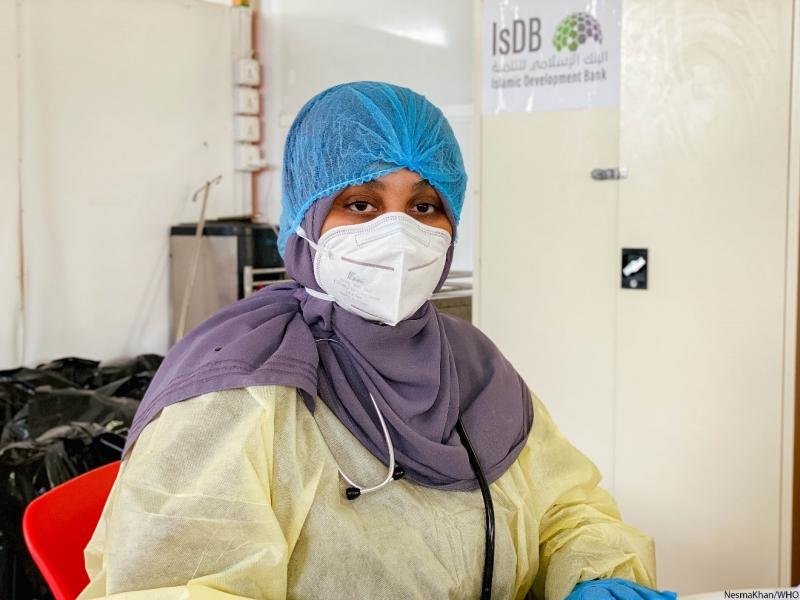Health Workers in Yemen Fight for the Lives of COVID-19 Patients
“Imagine becoming like family for a complete stranger, like everything they have in life and like their lifeline. During my work for the COVID-19 response, we work tirelessly to save the lives of these patients and offer them care and support in their fight against the disease,” says Fadhl Ismail, a health worker in the Al Amal isolation centre in Aden since the first COVID-19 wave in March 2020.
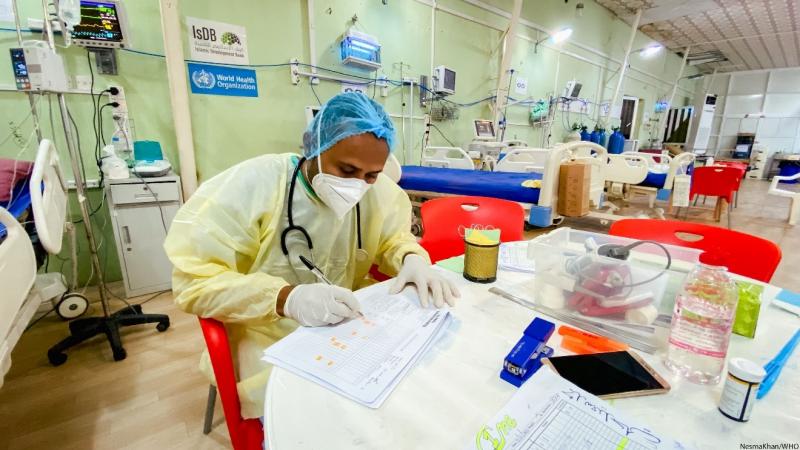
Fadhl was one of the first responders, joining the isolation center despite his fear of the disease. “At the start of COVID, we were extremely fearful not only for ourselves but also for our families and loved ones. We didn’t have enough knowledge about how to deal with this disease and protect ourselves, or about how to care for patients without putting ourselves at risk. Now we are less afraid because we’ve been trained in how to keep ourselves from getting infected and manage patients properly,” Fadhl adds.
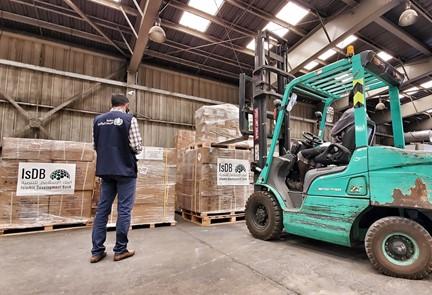
WHO joined forces with the Islamic Development Bank (IsDB) and the Ministry of Public Health and Population (MoPHP) to save lives from the COVID-19 pandemic and contain the disease’s spread; the joint project (YEM-1024) is entitled the IsDB Group Emergency Support for the COVID-19 Preparedness and Response Plan in Yemen.
The partnership contributes to the substantial upgrading of operational capacities of 32 COVID-19 treatment centres and central public health laboratories across the country. The upgrading occurs through provision of essential medicines and supplies, personal protective equipment (PPE), and other medical equipment and technologies that are critical to infection prevention and control, and COVID-19 case management.
“My work entails providing medical care, providing medicines, and monitoring patients’ vital signs,” Fadhl says. “We keep monitoring their situation and never leave them until they have gotten past the critical stage.”
WHO, using funding from different sources, provided training on COVID-19 case management and Infection Prevention and control measures for key health workers supporting the 32 COVID-19 isolation centers supported by IsDB across the country.
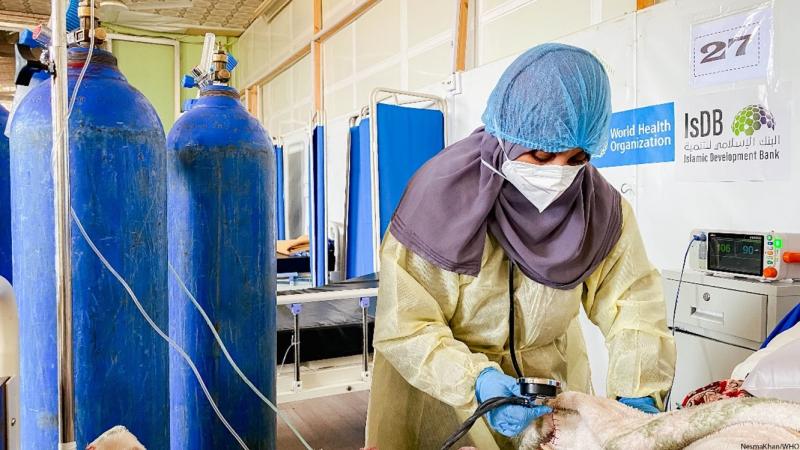
“At the beginning, I refused to work in an isolation center, because I heard that the health workers don’t have any protection measures, and I was very concerned for my children and mom who is diabetic,” says Shaima’a Abdulla, a nurse in the Al Amal isolation center.
"I didn’t want to put them in jeopardy. My main fear was that I would transfer the infection to my mom and hurt my family.”
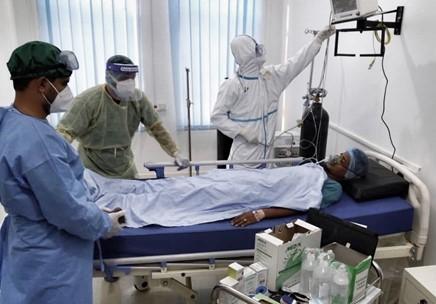
“When I got training, I felt reassured. I learned how to properly protect myself and teach patients’ loved ones about protecting themselves while visiting someone in the isolation center. And this has reassured us. It’s made us feel comfortable and secure so we are able to work in good spirits to provide the care these patents need in the best way we can.”
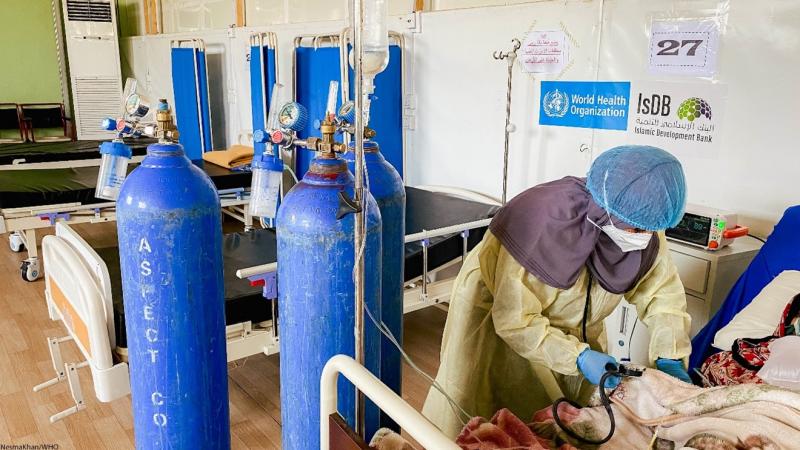
Shaima’a adds that she was able to help her neighbors. “I was giving them advice on how to protect themselves. If they got infected, I tried to raise their awareness and persuade them to get admitted to the isolation center and not believe rumors. I was able to do that, because I myself work there and have witnessed how care is provided to patients to save their lives.”
Through the partnership, WHO also is in the process of constructing 14 new oxygen production stations in 11 governorates that will help save lives from COVID-19. The stations will be put into operation between December 2021 and February 2022.
Moreover, WHO and the IsDB, in partnership with the MoPHP, have worked to provide isolation centers with broad support – everything from medical supplies to equipment.
“This support has been critical to helping the MoPHP be able to respond to COVID-19, especially with the humanitarian crisis that the country is experiencing,” Shaima’a adds. “I’m hopeful that this support continues to save lives.”
“I have learned, in particular, how to care for the patients in the intensive care units. I’m happy that now I have the means to save their lives,” Shaima’a continues. “I am going to work hard to support these patients, giving them everything I have.”
